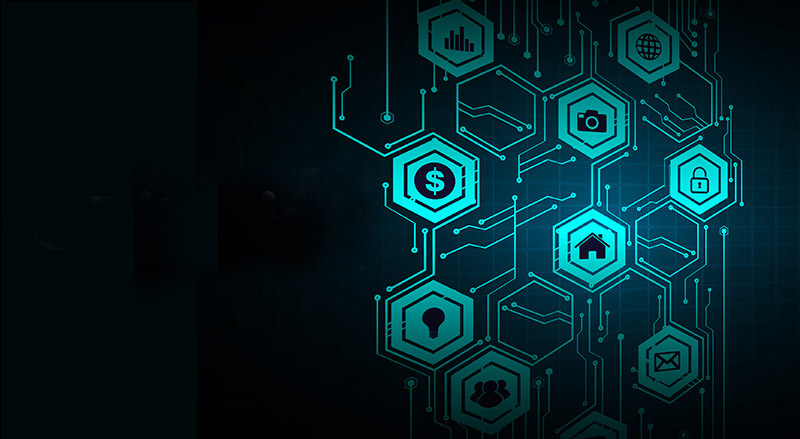Blockchain will not only change how we transact online but also the way that things are bought and sold. Notably, the technology allows for the creation of tokens representing different types of assets, such as currencies, securities, or even physical assets like real estate or art.
These tokens can be bought, sold, and traded on a blockchain network, which allows for the tokenisation of real-world assets and makes them more easily transferable and divisible.
To tokenise an asset using blockchain technology, a unique token is created that represents ownership of the asset. This token is then recorded on the blockchain ledger, which provides a transparent and secure way to track ownership and transfer of the token.
As blockchain technology becomes more commonplace and usage increases, ultimately everything is likely to be tokenised, says Joe Holles de Peyer. Holles de Peyer is the co-founder of Gate2Chain, a company focused on providing blockchain development tools for businesses wanting to harness the full potential of blockchain.
‘Everything will be tokenised eventually because it makes sense. It makes things more efficient, more transparent. But where it delivers (is with) short-term returns,’ he said. He pointed to the ticketing and events industry as one which is likely to see some of the most benefits, with this ultimately progressing to a full Metaverse which allows for owning, tracing and securing digital assets.
Clear use cases for tokenisation
One of the clearest use cases for tokenisation is the events industry. Blockchain technology has the potential to revolutionise the event ticketing industry by providing a more secure, transparent, and efficient way to manage ticket sales and distribution. Traditionally, event ticketing has been plagued by issues such as ticket fraud, counterfeiting, and scalping.
These issues result in lost revenue for event organisers and create a frustrating and unfair experience for genuine fans who miss out on tickets due to the actions of scalpers and fraudsters. By utilising BSV blockchain, event organisers can overcome these challenges and provide a better experience for fans.
Holles de Peyer noted that this technology will mean for the first time in history scalping will be reined in, and allow people to resell their tickets safely and instantaneously, fundamentally changing the events industry.
Another sector which is likely to see a clear benefit is online shopping and the Metaverse. Trace, is a digital twin solution developed by IBM and Gate2Chain that brings lifetime value and ownership guarantees for products. This will plug in directly to existing software suites such as Salesforce and SAP, meaning business can be ‘blockchain-ready’ immediately.
BSV blockchain is the only blockchain capable of supporting world tokenisation
Holles de Peyer is incredibly bullish about BSV and maintains that it has several key benefits over competing chains. He cited the ‘ridiculously low fees’ and incredibly high transaction capabilities.
He added that this is vastly different from blockchains which are designed to extract money from users by offering worthless coins, with BSV instead offering a ‘sensible blockchain’ which can be used by both enterprises and the government.
Holles de Peyer pointed directly to the tourism industry in Mallorca, one of the biggest in the world, and how it stands to benefit from a system which is more transparent but also offers better engagement. This is most likely to be done through massively improved loyalty programmes but also better ESG tracking and accountability, he said.
